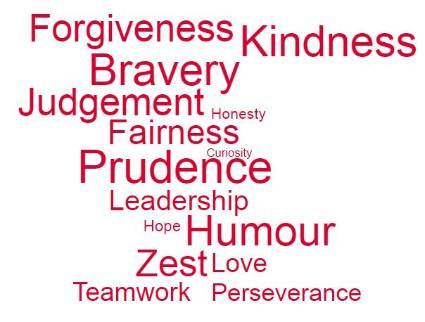Assessing your Strengths
It is only in recent years that organisations have begun to adopt a “strengths-based” approach to recruiting and developing their employees. Rather than the traditional management emphasis on addressing weaknesses, emphasis switched to harnessing the person’s inherent strengths to optimise levels of individual motivation and achievement
A strengths-based approach can also help you to map your strengths to roles or potential careers.
Key Facts about Strengths:
Strengths are viewed as innate and 'pre-existing' capacities, similar to talents. For talents to become strengths however, (similar to opera singing or classical guitar playing) they need to be developed through practice so that they become 'refined with knowledge and skill'.
They are energising. Using our strengths can enhance our wellbeing because it feels authentic – unlike skills or competencies in which you excel but do not enjoy. For something to be a strength, there must be a 'powerful, intrinsic, motivation' to use it. (Peterson & Seligman, 2004, p.18).
Harnessing your strengths can lead to your greatest achievements. By enabling, 'optimal functioning, development and performance', you are more likely to fulfil your potential in the pursuit of valued outcomes – valued by you and/or the organisations and causes you serve.
Being able to recognise and communicate your strengths will provide you with invaluable material for job applications and interviews.

Strengths-Based Self Assessments
The Clifton StrengthsFinder is based on more than 30 years of research, involving thousands of structured interviews, StrengthsFinder assesses 34 strengths, mainly within occupational settings, and provides a detailed feedback report that documents one’s top five themes of talent. As the strengths are assessed in occupational settings, this tool is ideal for those with professional experience.
The VIA Questionnaire measures 24 signature strengths, which are loosely organised under six virtues (wisdom and knowledge, courage, humanity, justice, temperance, and transcendence). The feedback reports again provide the respondent with a brief description of their five signature strengths. The VIA Questionnaire is broadly theoretically based, having been developed based on extensive academic groundwork by Character Strengths and Virtues, and handbook by Peterson & Seligman, 2004. You can take the questionnaire here: (Peterson & Seligman, 2004).
An equally effective way to begin to identify your signature strengths is to reflect on the following questions and share the “at your best” examples that emerge with a Careers Advisor, coach or trusted mentor.
- What are the things that you do best?
- What activities energise you?
- What do people tend to praise you for?
- When in your life have you excelled and enjoyed the effort involved?
- When have you solved a difficult problem or overcome an obstacle?
- What were the key strengths and resources that you drew on in both situations?
Of course, it would not be sensible to dismiss weaknesses, especially at an early stage in your career. There are many skills in which a basic level of competence is required these days to be employable, (e.g. interpersonal skills, organisational skills, IT, emotional intelligence). Avoiding a weakness you have in these key areas could lead to problems later. By taking the time to address those weaknesses now, you’ll have achieved the basic level required so that you are freed up to focus again on what you do best.
Complete the “Strengths and Weaknesses” sections of your Personal SWOT.

